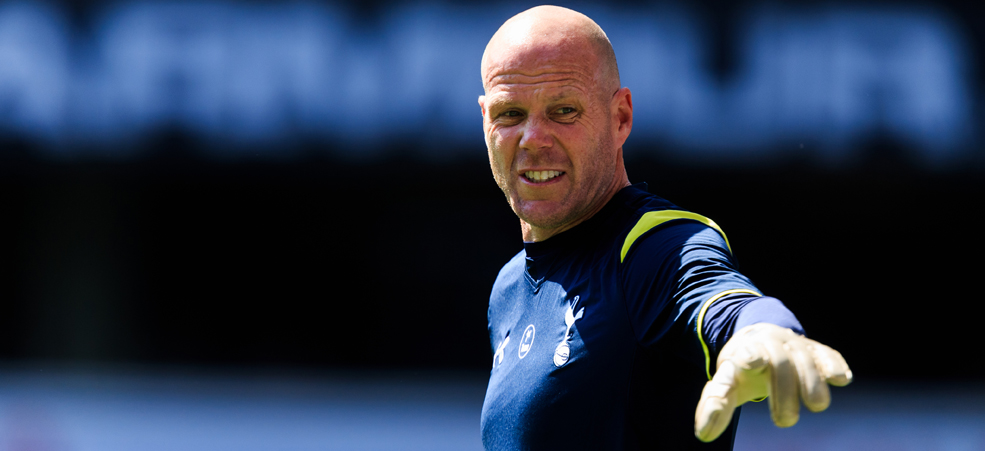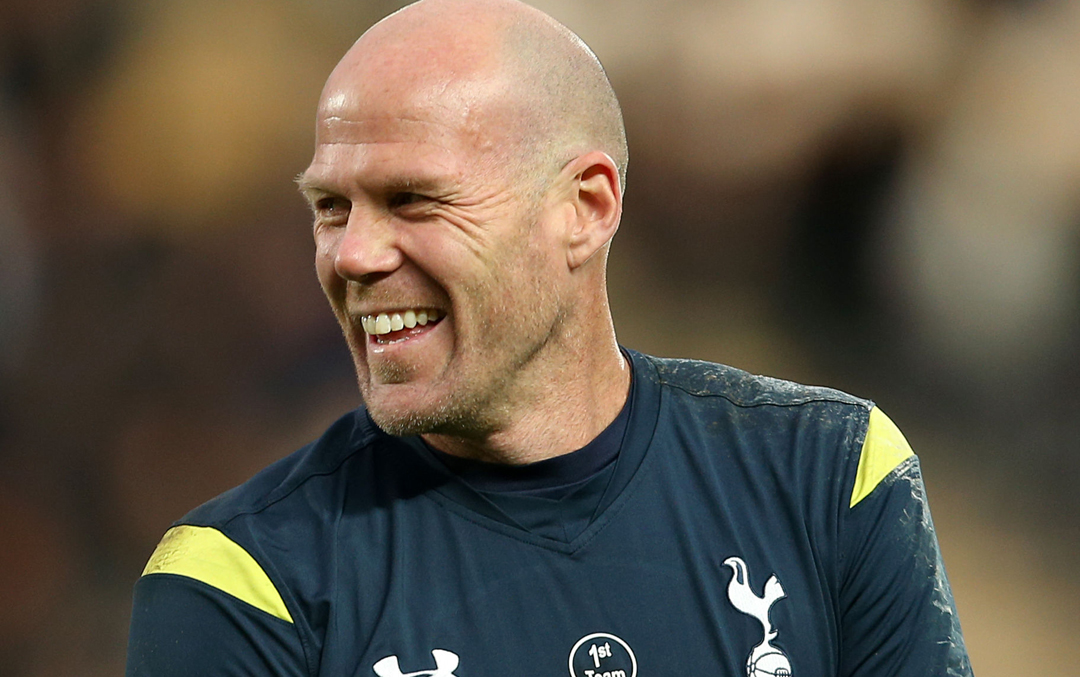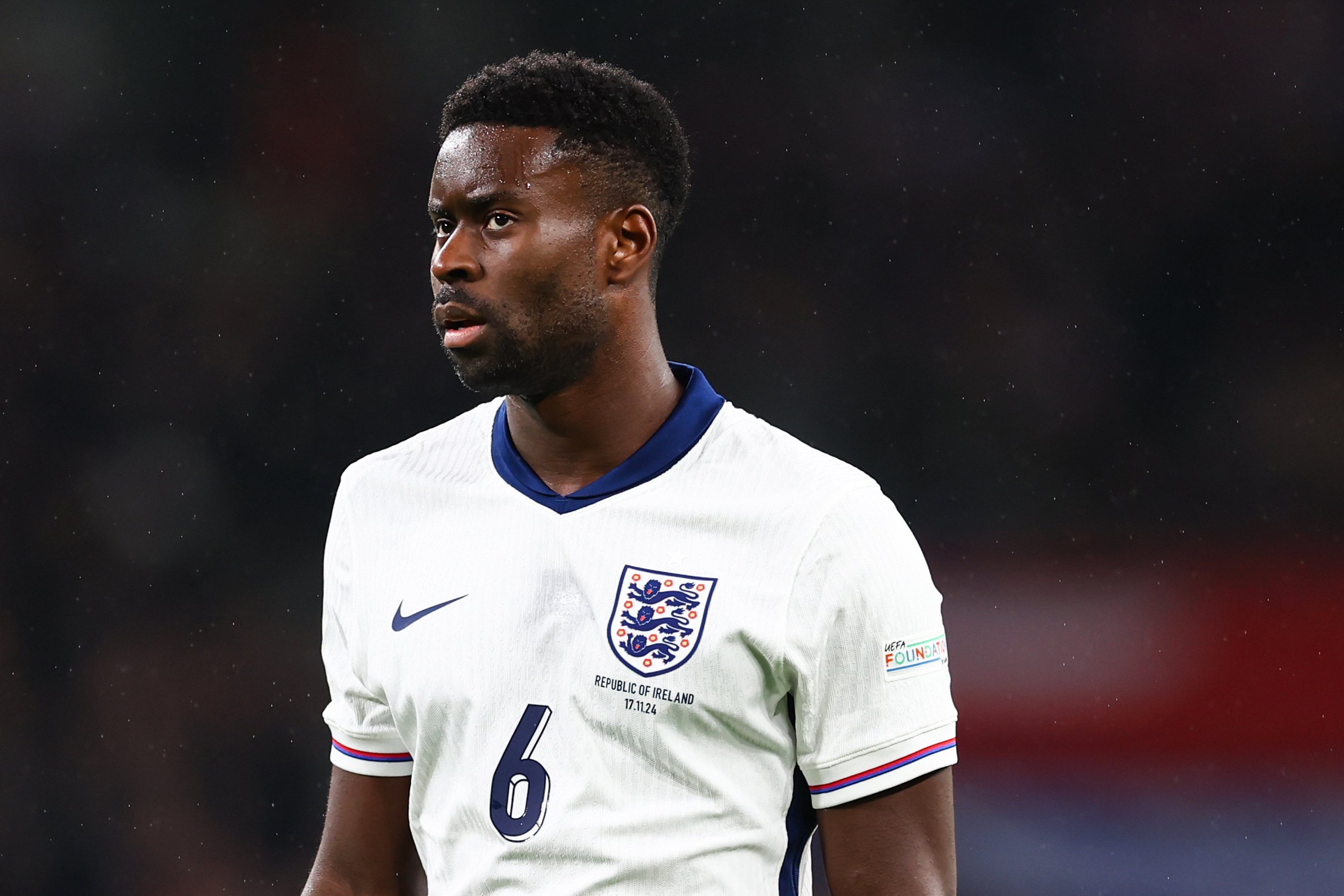
What’s your pre-match routine?
My routine has changed dramatically over the years. I used to have double training sessions and cover every last bit of the game plan before a match. In terms of mental preparation, I still have a psychological routine, and I make sure I eat and drink the right things. As the years have gone by I’ve become more experienced and I use these rituals less and less. Now my warm-ups are very much now about getting used to the flight of the ball and feel for the pitch. I focus on preparing myself for the game during the week and then come game day, I trust my ability, knowing I can do the rest. It has changed drastically, but there’s a huge psychological element to goalkeeping.
Do you listen to music to help you focus?
No. I never got into listening to certain songs, but a lot of players do. At Tottenham the young lads put music on in the changing rooms and I’ll just listen to that. All athletes have a particular routine they like to stick to and listening to a certain song can become part of that. I can see how it helps players get pumped up, but it’s never worked for me.
Do you visualise yourself making saves before a game?
The bigger the game, the less of that I do. It’s remarkable. When I was back in America and playing for University of California, Los Angeles (UCLA) we had a strong team and won a lot of games. The coach used to say, “The biggest games are easy to prepare for – naturally you get up for those ones. But the ones you’re supposed to win – they’re tougher because you’re not always mentally correct.” If you can concentrate for matches against the lesser teams your ability will do the rest. For the bigger games my adrenalin is really flowing I don’t feel the need to visualise.
How do you overcome a mistake in game?
That’s the biggest challenge for a goalkeeper. Immediately after making an error on the field you’ve got to let it go and focus on the present. Then, after you’ve had a bad game, you have to digest what’s been written about in the press and get over it. This is especially difficult when you’re young. It becomes a lot easier as you get older because you know everyone makes mistakes. When you’re going through a bad run of form you have to faith in your ability and that will help you come through it. The strength of a goalkeeper is not making that mistake again and crumbling in a game. I always try to remember, “You’re never ever as good or as bad as you think you are. It never looked as good or as bad as you thought it did - and that’s a fact.” As a goalkeeper you’ve got to keep on an even keel and not worry about what other people think. Know that you can play your position better than other people are thinking.

When your team is dominating a game and you don’t have much to do, how do you stay focused?
In England, where you get a lot of wind and rain, you’ve got to keep moving. Don’t stay static. You also need to keep talking to yourself and communicating with your defenders. These techniques have always helped me to stay in tune during a game when I’m not busy. There are times when you play at home and the opposition play with one striker and you don’t have anything to do for 20 to 30 minutes. Then suddenly you’re called upon and you have to make an important save. It’s very important to maintain your concentration.
How do you psyche out a penalty taker?
There are a lot of things to consider - is the kick young? Old? Experienced? Confident? All these little things can influence how they take the penalty and how you have to try and stop it. If you know which side he’s goes to then you can tip him off that you know – this will unsettle him. You can act all nonchalant, like it doesn’t really matter to you, putting all the pressure on them. The pressure is on the taker – they should score. It’s one of the few times a goalkeeper is in a no lose situation. If you save it you’re a hero and if they score you don’t get blamed for it.
Do you like to guess which way the kicker is going to place it or do you wait until they strike the ball?
I don’t like to guess. I try to pick up on their body language and work out what way they’re going to put it. The angle and length of their run up can give you some clues. I study penalties before a game so I know the habits of the opposition’s regular taker. If I ever was guessing it would be more of an educated guess, but I’ve got this wrong many times in my career. And a fair few right.
What else do players do to reveal which way they’re going to place a penalty?
The distribution of their body weight and where they plant their standing foot. If a player’s weight goes above the ball and they’re a right footed, then the ball is going to the goalkeeper’s right and the player’s left. That’s the biggest tell-tale with a right footed player. Reading a left footed player is a lot trickier. More often than not a left footed player will shoot to your left, but sometimes the run up and angle of their foot looks so different because you face so many more right footers. It looks like they’re going to strike the ball to your right, but they seem to be able to wrap their foot around the ball more than a right footer can.
Do you have any tips for winning a one v one with a striker?
This is another situation where the striker has a clear advantage over the goalkeeper, but there are some tricks of the trade to improve your chances of making a save. If they take a heavy touch and the ball gets away from them, that’s your chance to make up some ground. Most importantly you have to narrow the angle and stay big. Stand up as long as you can and force the striker into making a decision. A lot of goalkeepers go down really early and that makes the striker’s job a lot easier. Try to force them a little bit wide as well if you can.
What do you hate more: Getting nutmegged or having the ball dinked over you?
I’m not worried about the nutmeg. A lot of the times when the ball goes through the goalkeeper’s legs it’s from close range and there’s nothing you can do about it. In fact, it’s one of the better places to hit it, especially if the ball is being played across the box and you’re trying to make up ground and your legs cross. It’s a hard place to save the ball. If it’s a shot from outside the box and ball goes through your hands or legs, you’ve got to take responsibility. This is the worst type of goal to let in. Thankfully I’ve not had that happen in my career too many times.
When it’s just you between the striker and goal, do you look for any clues to what they’re going to do?
Sometimes you can tell whether the striker is confident or not. When they don’t break stride, look up or change pace, you know they know what they’re doing. When a striker looks up I think, “I’ve got him beat”. The pace with which a striker runs at you makes a huge difference. If they slow down it makes it a lot easier for you. If they maintain their speed and shift it wide of you, there’s a lot of risk involved for the goalkeeper. If you stick out your arm or leg there’s a chance you’re going to trip them up, give away a penalty and get sent off.
Under Armour athlete and Tottenham Hotspur goalkeeper Brad Friedel trains in ColdGear Infrared, the latest innovation in base layer technology that uses a thermo-conductive inner coating to keep you warmer for longer. For more details about the range, please visit www.UnderArmour.com
The best features, fun and footballing quizzes, straight to your inbox every week.
 Join The Club
Join The Club





